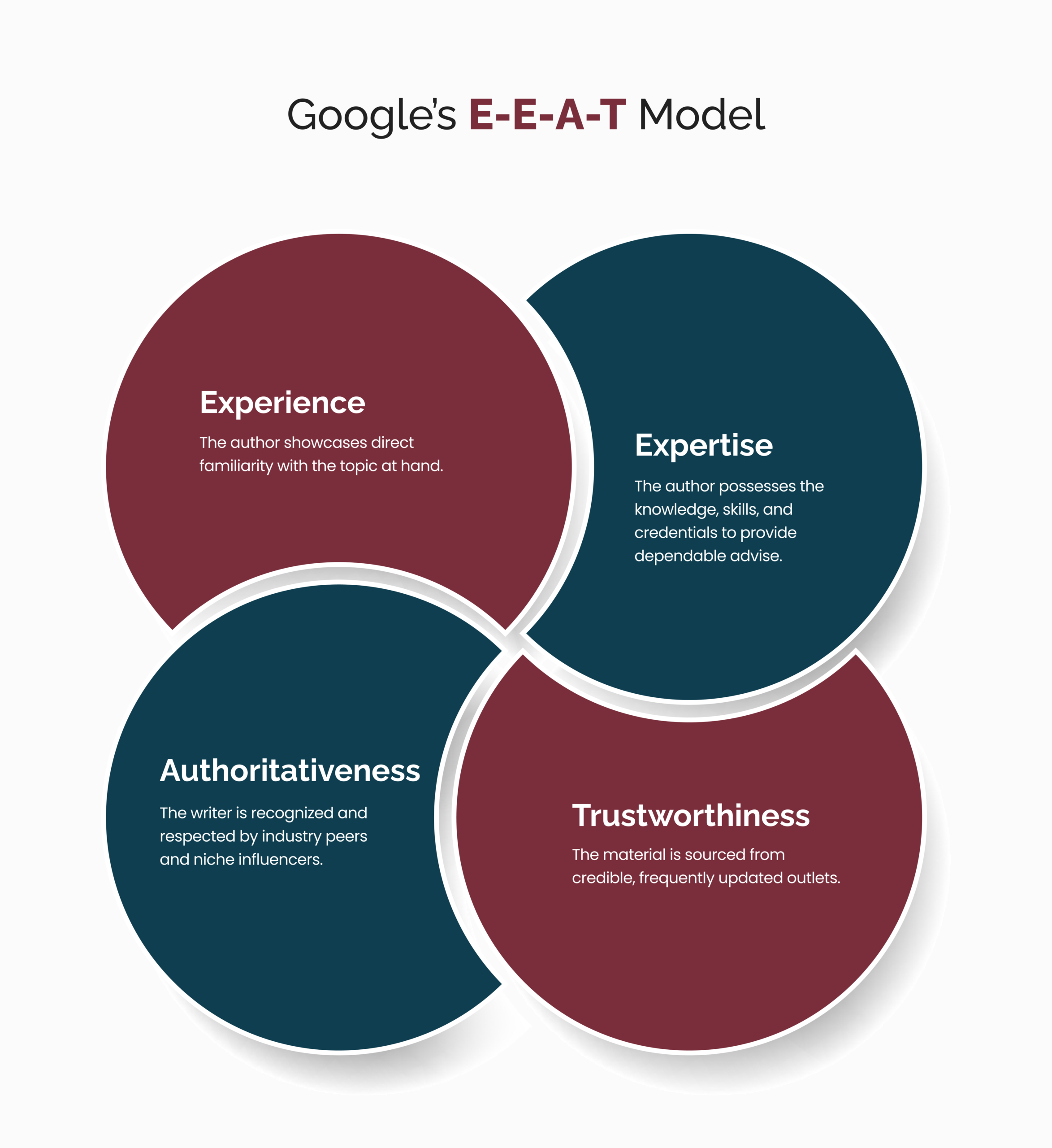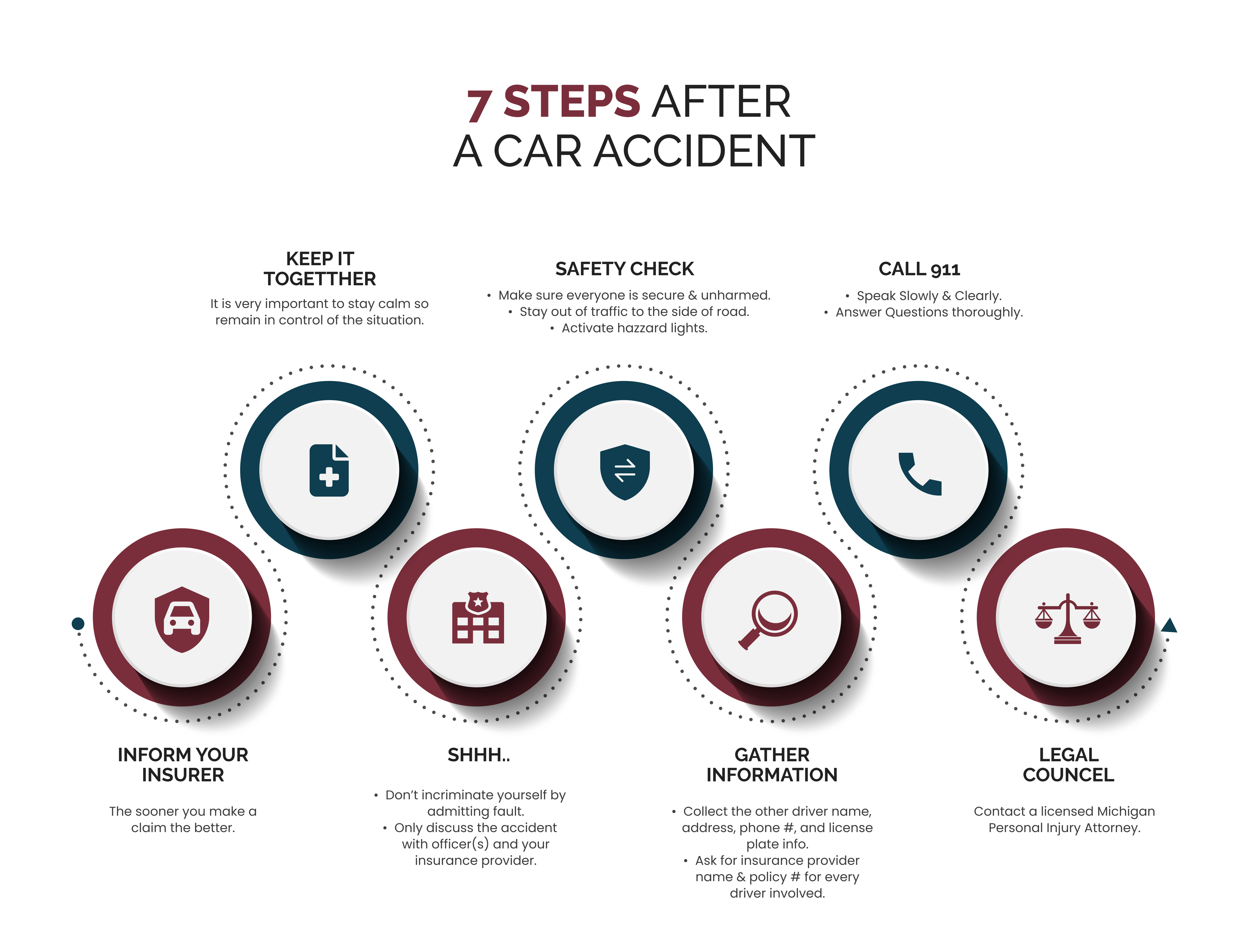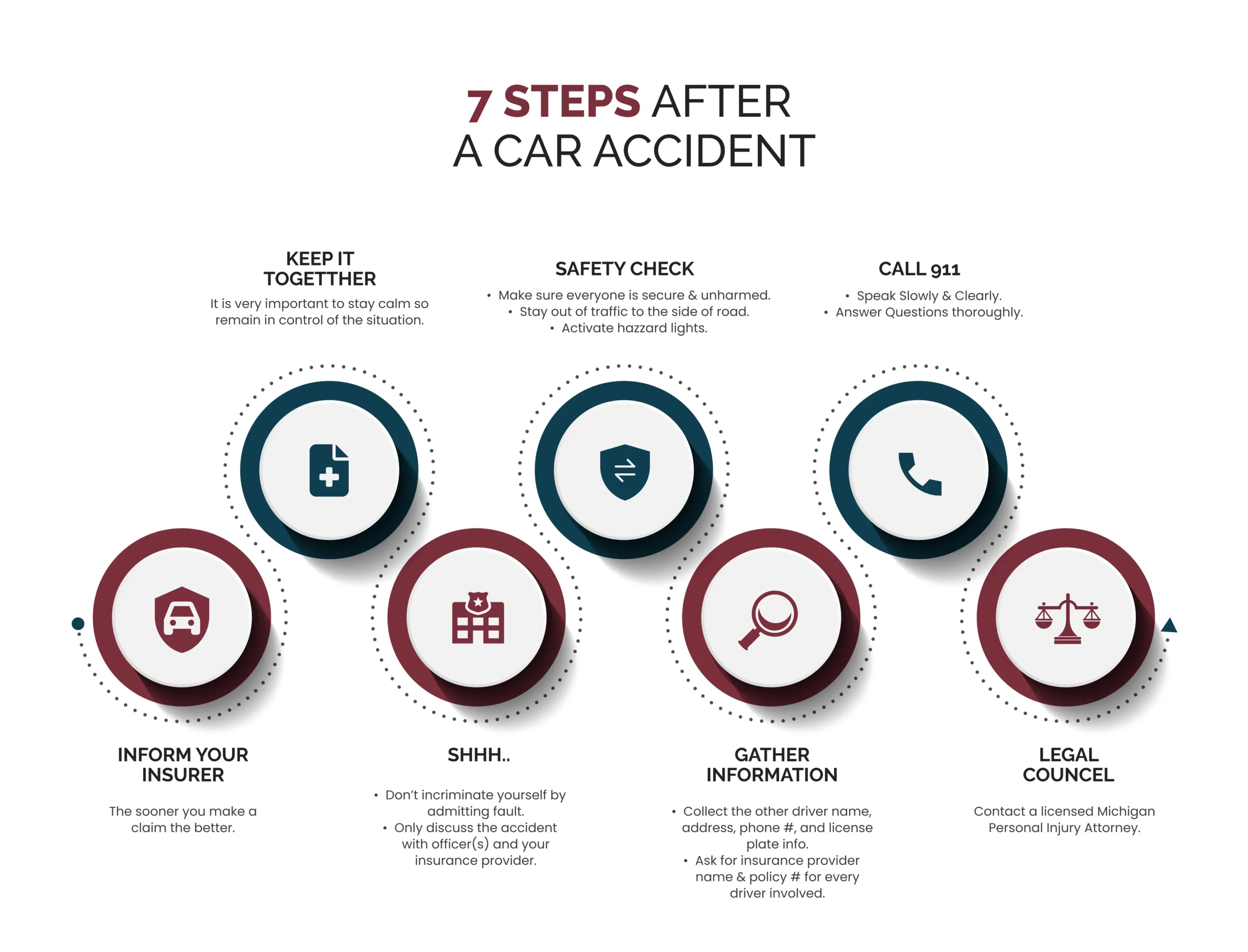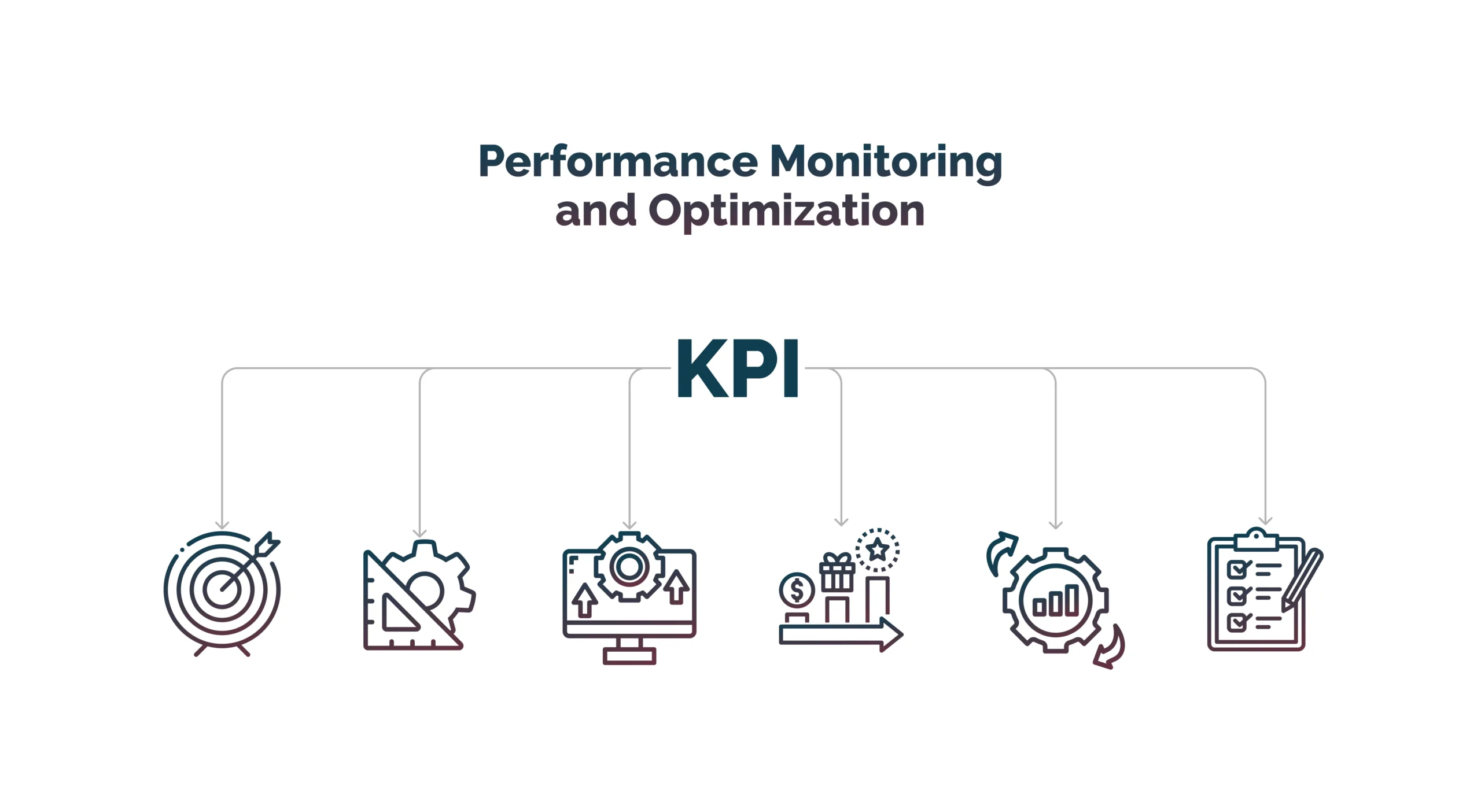Chapter 5
A Guide to Law Firm Website Content
What is Law Firm Content Marketing?
Law firm content marketing is about creating and sharing useful content to attract and engage your desired audience.
The primary goals are establishing your law firm as an authoritative source, building trust with potential clients, and enhancing your online visibility.
When it comes to law firm website content writing, it’s always advisable to collaborate with a professional. Crafting compelling and effective content that resonates with your audience while adhering to legal standards requires expertise. However, if you choose a DIY approach, let this guide be your companion in navigating the intricacies of content writing for your law firm’s website.
E-E-A-T: The Cornerstone of Trustworthy Content
Expertise, Experience, Authoritativeness, and Trustworthiness (E-E-A-T) form the foundation of Google’s guidelines for assessing content quality, particularly after its algorithm updates focusing on content credibility and user trust. Here’s a deeper dive into each component and why they are pivotal for law firm content creation.

Expertise
Expertise refers to the depth of knowledge and skill an individual or organization has in a specific field. For law firms, showcasing expertise means providing evidence of your legal understanding. Examples include detailed case analyses, insightful commentary on legal developments, or articles demonstrating a deep understanding of complex legal issues.
Google established this criterion to ensure that users receive content from knowledgeable and informed sources, thereby enhancing the quality and reliability of the information provided.
Experience
Experience, the additional ‘E’ in E-E-A-T, is particularly relevant for industries like law, where real-world experience and a proven track record are vital. It involves demonstrating that you have practical experience in the field and have successfully navigated the complexities of the legal system. This might include sharing success stories, testimonials, or the history of your firm and its attorneys. Google values experience as it contributes to the depth and applicability of the content provided.
Authoritativeness
Authoritativeness is about the reputation and credibility of the content creator and the website.
It involves peer recognition, endorsements from industry bodies, and citations from reputable sources. This could mean featuring awards, certifications, or positive client reviews for a law firm. Authoritative content is reliable and trusted by users. Google emphasizes this to prioritize accurate and respected content within its field.
Trustworthiness
Trustworthiness relates to the accuracy, transparency, and honesty of the content and the website. It means that users can rely on the information to make crucial decisions. This is very important for legal topics as they often inform decisions that can have significant personal or financial implications.
Trustworthiness is built by using reliable sources, being transparent and open, and keeping your website secure. Google focuses on trustworthiness to protect users from misleading or fraudulent content.
Why Google established E-E-A-T
E-E-A-T was established as part of Google’s ongoing commitment to improving the quality of content available online. In an internet filled with misinformation and low-quality content, these guidelines help ensure users access reliable, accurate, and helpful information.
They are especially critical in “Your Money or Your Life” (YMYL) topics, like legal advice, where inaccurate reports can have serious consequences.
By prioritizing content that meets the E-E-A-T criteria, Google aims to maintain trust with its users and provide a safer, more dependable online experience.
What Type of Content Should I Create for SEO
Diving into the world of legal content marketing and exploring various content ideas is essential for enhancing SEO.
A diverse and well-crafted content portfolio establishes authority, trust, and connection with prospective clients. Here’s how to expand and enrich each type of content to improve the search engine rankings for your law firm websites:
Practice Area Pages
- One Practice Area = One Page: If you are a personal injury attorney, you should have a page dedicated to Personal Injury only. Do not try to cover Car, Truck, and Motorcycle Accidents on the same page. Each practice area and sub practice area must have its own page.
Here is an example of Lytal, Reiter, Smith, Ivey & Fronraths Practice Area pages outlined on their site :

- Targeted Locations: Specify the geographic areas your law firm serves on each practice area page. Incorporate location-specific keywords to optimize for local searches and attract clients in your targeted regions
- Detailed Case Studies: Showcase your expertise and success by detailing significant cases your firm has handled. Include the challenges, the strategy employed, and the outcome, respecting client confidentiality agreements.
- FAQs for Each Practice Area: Develop comprehensive FAQs for each practice area. For instance, for a family law section, include informative content such as questions about divorce, child custody, or alimony.
- Testimonials: Feature testimonials from clients you’ve successfully represented. Video testimonials can be particularly impactful, providing a personal touch and allowing potential clients to hear directly from their peers.
Blog Posts & FAQs
- Current Legal Trends: Write about recent changes or significant legal trends affecting your practice areas. For example, discuss how new data protection laws might impact businesses.
- Analysis of High-Profile Cases: Discuss high-profile legal cases relevant to your practice areas. This showcases your expertise and capitalizes on current events driving search traffic.
- Deep-Dive FAQs: Create in-depth FAQ pages that answer common questions in detail. For instance, a comprehensive FAQ on the steps involved in the probate process, each elaborated with examples and actionable advice.
Resource Pages
- Legal Guides: Compile detailed guides on specific legal issues or processes, such as “A Complete Guide to Understanding Your Rights in Personal Injury Claims” or “Navigating Corporate Law: A Business Owner’s Handbook.”
- Glossaries of Terms: Legal jargon can be confusing. Create a glossary of standard legal terms and phrases in your practice areas to help potential clients better understand the content.
- External Links: Link to authoritative external content like government publications, legal research databases, or educational resources to provide additional value.
Long-Form Content (Guides & Ebooks)
- Comprehensive Guides: Develop extensive guides on estate planning, business formation, and personal injury laws. Use real-life scenarios to illustrate points and provide actionable advice.
- Ebooks: Create downloadable ebooks that users can refer to offline. For instance, an ebook on “What to Do Immediately After a Car Accident” can be a valuable resource for personal injury clients.
Visual Content
Infographics: Content posts that include images and graphics have up to 650% higher engagement. Create infographics that break down complex legal processes, like the steps in a criminal trial or the timeline of a typical personal injury case.
For Example, here is a step by step infographic on what to do after you have been in a car accident

Attorney Introduction Videos: Personalize your firm with introduction videos for each attorney. Discuss their expertise, background, and what drives their passion for law.
Explanatory Videos: Produce videos that explain complicated legal concepts in simple terms. For example, a short video explaining the differences between various business entities and how to choose the right one.
Additional Content Types
- Podcasts: Start a podcast discussing multiple legal issues, interviewing experts, or exploring the legal aspects of current news.
- Webinars: Host webinars on relevant legal industry topics. This provides valuable information and showcases your firm’s expertise to a live audience.
- Interactive Tools: Develop interactive tools like calculators for potential settlements, timelines for legal processes, or quizzes to help users determine if they need legal assistance.
A Rich Tapestry of Content
By diversifying the types of content your law firm produces and ensuring each piece of content is crafted with expertise, authority, and the users’ needs in mind, you’re not just building an SEO-friendly website. You’re creating a rich tapestry of resources that will establish your firm as a knowledgeable, trustworthy, and approachable entity in the legal landscape.
Each content type, from in-depth guides to engaging videos, draws potential clients closer, offering them the value and reassurance they seek when facing legal challenges.
Optimizing Content: A Deeper Dive
Content optimization is the process of refining and enhancing online content to make it more relevant, valuable, and visible to both users and search engines. The goal is to improve the content’s performance in search engine results and enhance the overall user experience. Here’s how you can expand your strategy beyond basic SEO practices:
Advanced Keyword Research
Go beyond primary keywords and include secondary and tertiary keywords that capture a broader range of user queries.
Secondary keywords, also known as LSI (Latent Semantic Indexing) or related keywords, are terms and phrases closely associated with a primary or main topic. These keywords help provide context and a more comprehensive understanding of the content’s subject matter. While the primary keyword is the main focus of the content, secondary keywords support and enrich the overall context.
For instance, if a personal injury law firm’s primary keyword is “personal injury lawyer,” related or secondary keywords might encompass “car accident attorney,” “slip and fall legal advice,” “workplace injury representation,” and “medical malpractice law firm.” These terms are pertinent to the broader subject of personal injury law and assist search engines in grasping the content’s scope and pertinence.
You can use tools such as SEMrush SEO Content Template to understand the language and questions your potential clients are using and incorporate these naturally into your content.
Advanced Internal Linking
Develop a strategic internal linking structure that guides users through your site, increasing time on site and page views. Use anchor text that’s both descriptive and keyword-rich.
User Intent Matching
Understand the intent behind the keywords – whether users are looking for information, making a decision, or ready to take action. Tailor your content to meet these needs, providing answers, insights, or clear next steps depending on the user’s stage in their journey.
For a more in-depth understanding of user search intent, check out SEMrush’s informative guide here.
Content Structuring for Featured Snippets
Organize your content to answer questions directly and concisely at the piece’s beginning. This approach immediately provides value to your readers, ensuring they get the information they need right from the start.
Organizing content this way engages your audience effectively and respects their time, making your legal insights more accessible and user-friendly.
Use lists, tables, and clear headings to increase the chances of your content being featured in Google’s featured snippets, thereby increasing visibility.
Schema Markup for Rich Snippets
Schema markup, often referred to simply as “schema,” is a structured data vocabulary that helps search engines understand the content on web pages more comprehensively. It provides a standardized way to mark up and annotate elements on a webpage, offering additional context about the content. Search engines can then use this structured data to generate rich snippets and enhance search results with more information.

For a law firm, there are several types of schema markups that can be particularly beneficial:
- LegalService Schema: Specific to legal organizations, this schema provides details about the law firm, like areas of practice, awards, and reviews.
- FAQ Schema: If your website has a FAQ section, implementing an FAQ schema can result in direct answers appearing in SERPs, increasing visibility and user engagement.
- Article Schema: For law firms publishing articles or blogs, this schema helps in highlighting the headline, author, and publication date in search results.
- Event Schema: Useful for firms hosting or participating in events, this schema can display event details like date, location, and description directly in SERPs.
- Review Schema: Showcasing client reviews and ratings, this schema can enhance trust and credibility in the firm.
- Breadcrumb Schema: Useful for multi-page websites, it helps in displaying a breadcrumb trail in SERP, showing the user’s path to their current page on your website.
- Person Schema: For individual attorneys, this schema can provide information about their education, awards, and professional status.
- LocalBusiness Schema: Essential for local SEO, it provides details like location, hours of operation, and contact information.
By implementing these schemas, a law firm can enhance its online presence, making it easier for potential clients to find relevant information and choose their services.
For more on implementing schema markup, read here
Regular Content Updates and Refreshes
Does updating content improve SEO? Yes!
Google’s Freshness Algorithm refers to an algorithmic component used by Google to assess and rank search results based on the freshness or recency of content. The Freshness Algorithm aims to provide users with the most up-to-date and relevant information, particularly for topics that require timely or current information.
Keep your content current by regularly updating statistics, legal information, and any other time-sensitive data. Republishing older content with new insights or updated information can revitalize its performance.
Backlinks
Content can also help you get backlinks. The goal is to create shareable, linkable content.
Research topics relevant to your legal niche that have the potential to attract backlinks. This could include comprehensive guides, case studies, legal analyses, or unique insights that are valuable to your target audience.
When content is optimized and supported by authoritative backlinks, it creates a powerful synergy, boosting the website’s potential to rank higher in search results and ultimately increasing its overall online impact.
User Experience and Accessibility
Ensure your content is accessible to all users, including those with disabilities. Use clear language, provide alt text for images, and ensure your site is navigable with a keyboard only. Your pages should contain:
- Clear, informative headers
- Short paragraphs
- Bulleted lists
- Pictures/infographics
- Call to actions
Performance Monitoring and Optimization

Regularly monitor how your content performs using tools like Google Analytics. Look at metrics like time on page, bounce rate, and conversions to understand what’s working and where there’s room for improvement.
Conclusion: Elevating Your Law Firm's Content Strategy
By expanding on the core elements of website content for lawyers, and implementing these additional strategies, your law firm can significantly enhance its online presence and user engagement.
Effective law firm content marketing is an ongoing process that involves understanding your audience, leveraging your expertise, and continuously optimizing based on performance and feedback. Embrace the journey, and watch as your content becomes a powerful tool in attracting, engaging, and converting potential clients. Remember, your content in the competitive legal market isn’t just what you publish; it’s the narrative of your firm’s expertise, values, and client commitment. Make it compelling; make it count.
LAW FIRM SEO GUIDE

“Hiring Everspark to do the comprehensive SEO audit of my website was money very well spent. They are thorough, knowledgeable and approachable.”
-Mike Rafi
READY TO PARTNER WITH ONE OF THE BEST DIGITAL MARKETING AGENCIES?